In the ever-changing business world we live in, strategic planning is essential to successfully achieving our goals as a company. In this context, OKRs (Objectives and Key Results) have become a key tool for businesses of all sizes, from startups to major brands.
Let’s start by defining: What are OKRs?
OKRs are a system for defining objectives and measuring results that aligns the entire company around a common vision.
They are based on the idea of setting ambitious but achievable goals (Objectives) and key results (Key Results) that measure progress toward their fulfillment.
Now then, why do we believe they are so important? (So much so that we’re dedicating an entire blog post to them 😂)
At Lab9, starting this year, we decided to set OKRs every four months to guide us as a team. That’s why we want to share some of the benefits we’ve experienced since their implementation:
- Alignment: They promote alignment across different departments and teams in the company, ensuring everyone works together toward a common goal.
- Focus: They help concentrate efforts on key priorities, avoiding dispersion and resource waste.
- Motivation: They inspire by providing a clear vision of objectives and a system to measure both individual and collective progress.
- Transparency: They encourage transparency by communicating objectives and results to all members of the company.
- Adaptability: They allow for quick adaptation to market changes and business needs.
How to Define OKRs in Your Company
Defining them is a process that requires the active participation of all levels within the organization. While having a project manager to guide you is ideal, here are some steps that worked for us:
- Define the company’s vision and strategic objectives: This foundational step establishes the general framework upon which to build the OKRs.
- Set ambitious goals for each area: These should be challenging but achievable objectives that inspire teams to perform at their best.
- Identify 3–5 key results to measure progress toward each goal: These indicators should be specific, measurable, relevant, and time-bound.
- Ensure the OKRs are SMART: Specific, Measurable, Achievable, Relevant, and Time-bound. This methodology ensures that OKRs are clear, tangible, and action-oriented.
- Communicate the OKRs across the company and promote their regular tracking and measurement: It’s essential that all company members are aware of the OKRs and understand their role in achieving them.

As we can see, OKRs are not just a management tool but a fundamental part of an organization’s culture, driving collaboration, accountability, and a focus on results.
By implementing an effective OKR system, your company can unlock its full potential and achieve even its most ambitious goals.
⚠️ Remember: The key to success with OKRs lies in consistent implementation, regular tracking, adaptation to the ever-changing needs of the market and business, and the commitment of the entire organization.
Would you like to implement this tool in your company? We can help you! Contact us😉
